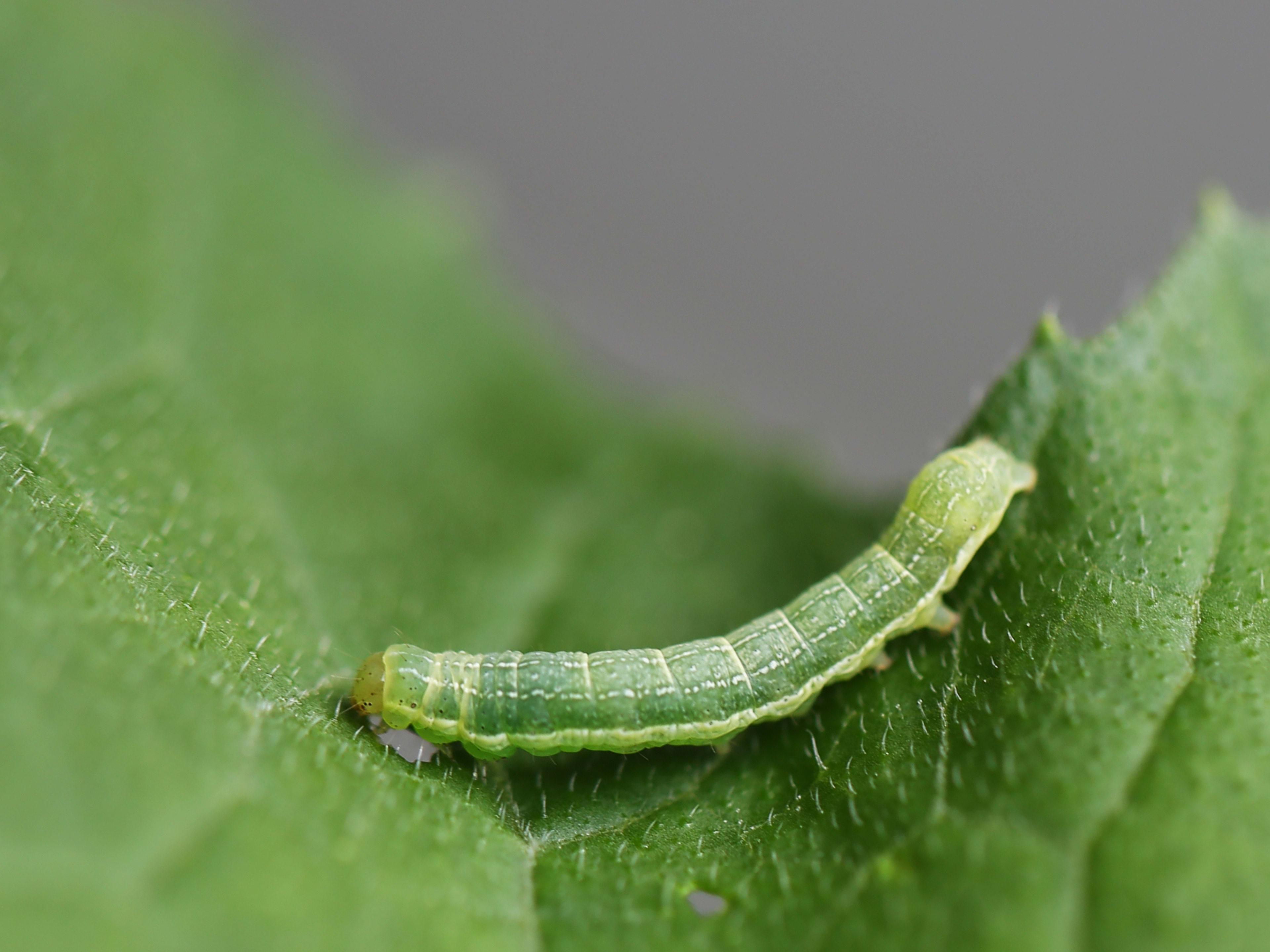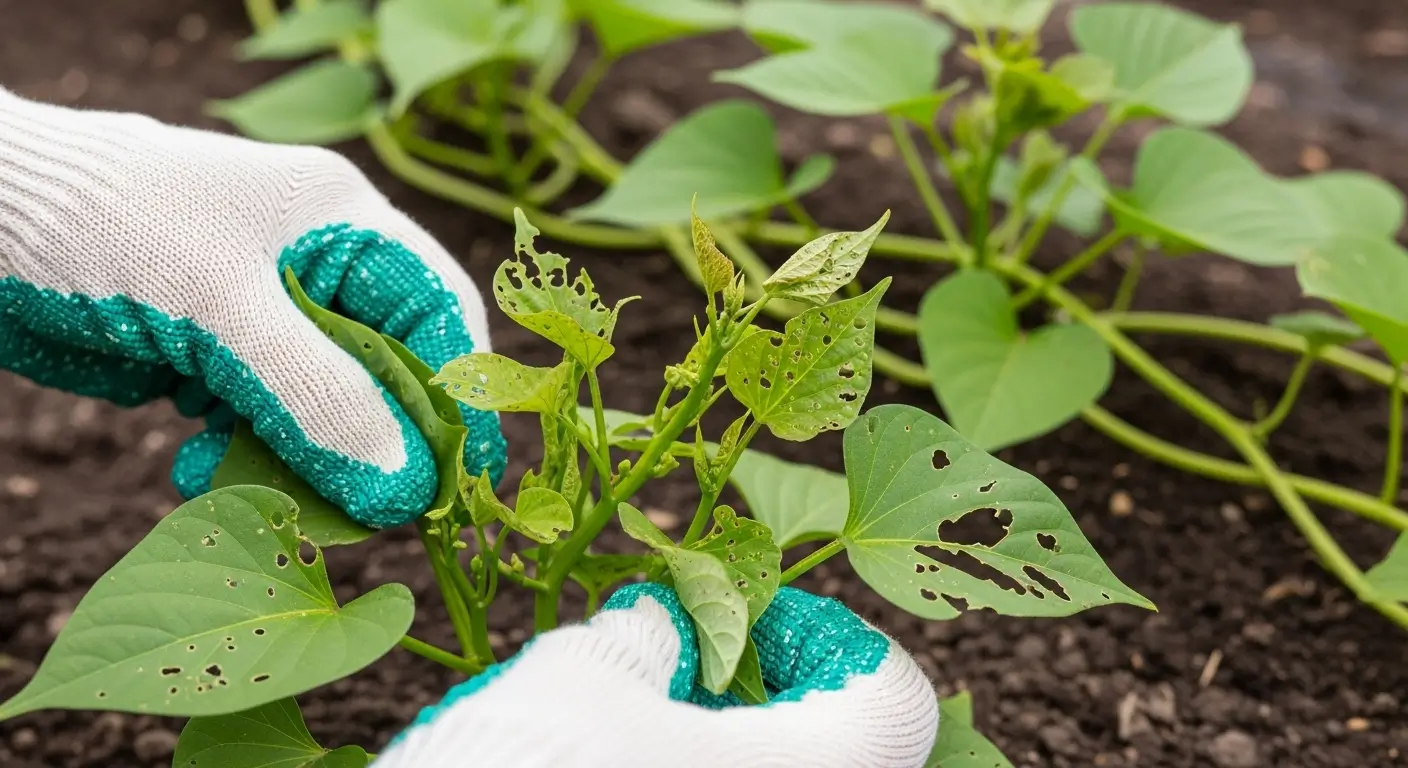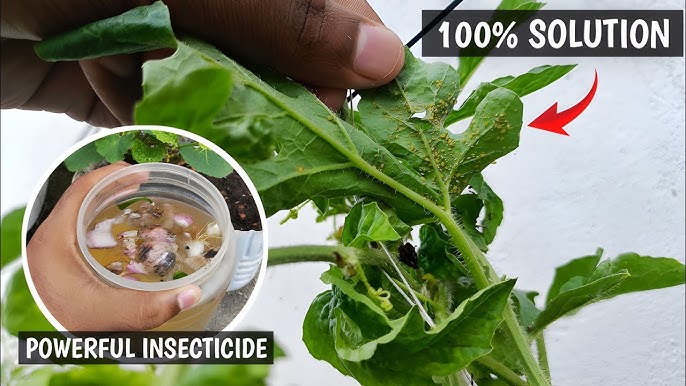Are you tired of seeing your hard-grown vegetables fall victim to pests? You want a healthy garden, free from harmful chemicals that can affect your family and the environment.
Imagine protecting your veggies naturally, keeping them safe and thriving without any toxic sprays. You’ll discover simple, effective ways to control pests using natural methods. These tips will help you enjoy a bountiful, chemical-free harvest that you can truly feel good about.
Keep reading to learn how to take care of your garden the natural way!
Benefits Of Natural Pest Control
Natural pest control protects your vegetable garden without harmful chemicals. It uses nature’s own methods to keep pests away. This approach supports healthy plants and a safe environment. The benefits reach beyond just pest management. They improve soil health, protect beneficial insects, and promote sustainable gardening.
Environmental Safety
Natural pest control avoids toxic chemicals. It keeps soil, water, and air clean. This helps animals and insects live safely nearby. It also reduces pollution and damage to ecosystems.
Healthier Vegetables
Vegetables grown without chemicals are safer to eat. They have fewer pesticide residues. This benefits your family’s health and well-being.
Supports Beneficial Insects
Natural methods protect helpful insects like bees and ladybugs. These insects pollinate plants and eat harmful pests. They keep the garden balanced and healthy.
Improves Soil Quality
Natural pest control encourages healthy soil life. It helps worms and microbes thrive. These organisms improve soil structure and nutrient availability for plants.
Cost-effective Gardening
Natural pest control often costs less than chemical treatments. It uses simple tools and materials. This saves money over time and reduces dependency on store-bought products.
Common Vegetable Pests To Watch
Many pests attack vegetable gardens. They cause damage and reduce harvest. Knowing these pests helps protect plants naturally. Watch for signs early to keep vegetables healthy.
AphidsAphids are small, soft insects. They cluster on leaves and stems. They suck plant juices and spread diseases. Leaves curl and yellow from aphid feeding.
Cabbage WormsCabbage worms eat holes in cabbage leaves. They are green caterpillars that blend in well. These pests weaken plants and reduce growth.
Tomato HornwormsTomato hornworms are large green caterpillars. They strip tomato plants quickly. Look for dark droppings and chewed leaves as signs.
CutwormsCutworms cut young plants at soil level. They hide in soil during the day. Damage appears as wilted or cut-off seedlings.
Spider MitesSpider mites are tiny and hard to see. They cause speckled leaves and webbing. Plants become weak and dry from their feeding.
Companion Planting Strategies
Companion planting is a natural way to protect vegetables from pests. It uses the natural traits of plants to keep bugs away. This method does not need chemicals or sprays. It helps create a healthy garden with less work.
Plants release smells or create shade that bugs dislike. Some plants attract helpful insects that eat pests. Others improve soil health or give support to neighbors. Knowing which plants grow well together is key.
Planting Marigolds To Deter Insects
Marigolds are famous for keeping bugs off vegetables. They release a scent that many pests hate. Planting marigolds near tomatoes or beans helps reduce harmful insects. They also attract ladybugs, which eat aphids and other pests.
Using Basil To Protect Tomatoes
Basil is a strong-smelling herb that repels flies and mosquitoes. Plant it next to tomatoes for better growth and fewer bugs. The smell confuses pests and stops them from finding tomatoes easily. Basil also improves the flavor of nearby tomatoes.
Growing Garlic To Keep Pests Away
Garlic has natural oils that bugs avoid. Plant garlic near carrots, peppers, or lettuce for pest control. It helps stop aphids, spider mites, and other common garden pests. Garlic also fights fungal diseases in the soil.
Attracting Beneficial Insects With Dill And Fennel
Dill and fennel flowers attract helpful insects like ladybugs and lacewings. These insects eat pests that harm vegetables. Plant dill or fennel near crops to invite natural pest hunters. This reduces the need for any chemical sprays.

Credit: dengarden.com
Attracting Beneficial Insects
Attracting beneficial insects helps protect vegetable gardens naturally. These insects eat pests that harm plants. They keep your garden healthy without chemicals. Planting the right flowers and herbs invites these helpful bugs.
Choose Plants That Attract Beneficial Insects
Many flowers and herbs attract good insects. Marigolds, dill, and fennel are great choices. These plants provide nectar and pollen for insects. Ladybugs, lacewings, and parasitic wasps come to feed. They hunt pests like aphids and caterpillars.
Create A Habitat For Beneficial Insects
Good insects need shelter and water. Leave some leaf litter and grass clippings. Build small piles of stones or wood. A shallow dish with water helps insects drink. This creates a safe place for them to live and breed.
Avoid Using Pesticides That Harm Beneficial Insects
Chemical sprays kill harmful and helpful insects alike. Avoid pesticides to keep beneficial bugs safe. Use natural pest control methods instead. This keeps the insect balance in your garden healthy.
Diy Organic Sprays And Solutions
Natural pest control protects your vegetables without harmful chemicals. DIY organic sprays and solutions use common ingredients found at home. These sprays help keep pests away while keeping your garden safe and healthy.
Making your own sprays saves money. It also reduces chemical use in your garden. You can control what goes on your plants. Simple recipes can fight many pests effectively.
Neem Oil Spray
Neem oil is a natural insect repellent. Mix 2 teaspoons of neem oil with 1 quart of water. Add a few drops of mild soap to help mix. Spray this on leaves and stems to stop pests. Neem oil works well against aphids, mites, and whiteflies.
Garlic And Chili Spray
Garlic and chili create a strong pest deterrent. Crush 5 garlic cloves and 2 hot chili peppers. Soak them in 1 quart of water for 24 hours. Strain the mixture and spray it on your plants. This spray keeps many insects away and is safe for vegetables.
Soap And Water Spray
Soap spray is easy to make and use. Mix 1 tablespoon of mild liquid soap with 1 quart of water. Spray it on plants to remove soft-bodied insects. Soap spray works well against aphids and spider mites. Avoid strong soaps that might harm plants.

Credit: www.veridiangardens.com
Physical Barriers And Traps
Physical barriers and traps protect vegetable plants without using chemicals. They create a shield that stops pests from reaching the plants. These methods work by blocking pests or catching them before they can cause damage. They are safe for the environment and safe for people.
Using physical barriers and traps helps keep vegetables healthy. These tools prevent pests like insects, birds, and small animals from eating the crops. They also reduce the need for harmful sprays and pesticides. This makes gardens safer for children, pets, and beneficial insects.
Using Row Covers
Row covers are lightweight fabrics placed over vegetable rows. They block insects and birds while allowing sunlight and water through. Covers keep pests like cabbage worms and aphids away. They also protect plants from frost and harsh weather. Use stakes or hoops to hold covers above plants.
Installing Garden Fences
Garden fences stop larger pests like rabbits and deer. Use wire mesh or plastic fencing around vegetable beds. Make sure the fence is tall enough and buried slightly underground. This prevents animals from jumping over or digging under. Fences are a strong defense for small gardens.
Setting Sticky Traps
Sticky traps catch flying insects like whiteflies and fungus gnats. Place brightly colored sticky boards near plants. The colors attract pests, and they get stuck on the surface. Check traps often and replace them when full. Sticky traps reduce insect numbers without chemicals.
Using Hand Traps And Pitfall Traps
Hand traps catch slugs and beetles by attracting them with bait. Place traps near plants and check daily. Pitfall traps catch crawling pests by trapping them in a container sunk into the soil. Fill traps with a little water or oil to hold pests. These traps help lower pest populations naturally.
Crop Rotation And Soil Health
Crop rotation and soil health are key to natural pest control in vegetable gardens. Healthy soil supports strong plants that resist pests naturally. Rotating crops breaks pest life cycles and reduces harmful insects.
Changing plant types each season stops pests from settling in. This method avoids chemical use and improves soil nutrients. Better soil means better plants and fewer pests.
What Is Crop Rotation?
Crop rotation means planting different vegetables in the same area each season. This confuses pests that target specific crops. It also prevents soil from losing the nutrients one plant uses.
For example, follow heavy feeders like tomatoes with nitrogen-fixing plants like beans. This cycle helps soil recover and stay fertile. It keeps pests and diseases low without chemicals.
How Crop Rotation Helps Soil Health
Rotating crops keeps soil balanced and full of nutrients. Different plants add or take different nutrients. This prevents soil depletion and reduces the need for fertilizers.
Good soil has many helpful microbes and worms. These creatures improve soil structure and fight pests naturally. Crop rotation supports this healthy soil life.
Tips For Effective Crop Rotation
Plan your garden in sections for rotating crops each year. Group plants by families like nightshades or legumes. Rotate groups instead of individual crops for best results.
Keep records of what you plant and where. This helps avoid repeating the same crop in one spot. Rotate crops every season or at least every year.
Maintaining Garden Hygiene
Maintaining garden hygiene plays a key role in natural pest control for vegetables. Clean gardens create an environment where pests struggle to survive. Removing debris and old plant material reduces places where pests hide and breed.
Regular cleaning also helps plants stay healthy and strong. Healthy plants resist pests better than weak ones. Good hygiene prevents the spread of diseases that attract insects and other harmful pests.
Remove Dead Leaves And Plant Debris
Dead leaves and plant debris attract pests and diseases. Clear them away after harvesting or trimming. Compost or dispose of these materials far from your vegetable beds. This stops pests from laying eggs or hiding near plants.
Clean Tools And Equipment
Garden tools can carry pests and diseases from one plant to another. Wash and disinfect tools regularly. Use warm, soapy water or a mild bleach solution. Clean tools reduce the chance of spreading harmful organisms.
Control Weeds Promptly
Weeds provide shelter and food for many pests. Pull weeds out by hand or use a hoe to remove them. Keep the area around vegetables free of weeds. This lowers pest populations and improves plant health.
Practice Crop Rotation
Changing plant locations each season helps break pest cycles. Pests that target one crop type fail to find food. Rotate vegetables to different spots every year. This simple step lowers pest buildup in the soil.
Monitoring And Early Detection
Monitoring and early detection are key steps to protect vegetables from pests naturally. Catching pests early stops them from spreading and damaging your plants. Regular checks help spot signs before problems grow.
Look closely at leaves, stems, and soil for pests or damage. Check plants often, especially the undersides of leaves where pests hide. Early action means less work and healthier vegetables.
Regular Visual Inspections
Walk through your garden daily or every few days. Use a magnifying glass for small pests. Watch for holes, spots, or sticky residue on leaves. Spotting these early helps control pests quickly.
Use Simple Traps
Sticky traps catch flying insects like whiteflies and aphids. Place traps near plants to monitor pest activity. Traps show pest levels and warn of infestations early.
Record Pest Activity
Keep a notebook or chart of pest sightings. Note dates, pest types, and affected plants. Tracking patterns helps plan natural pest control better. It also shows if treatments work well.

Credit: www.youtube.com
Tips For Sustainable Pest Management
Sustainable pest management protects your vegetable garden naturally. It keeps pests under control without harmful chemicals. This method helps the environment and keeps your vegetables safe to eat.
These tips focus on natural ways to manage pests. They support healthy plants and reduce damage. You can use these ideas to keep your garden strong and productive.
Use Companion Planting
Plant certain vegetables and herbs together. Some plants repel pests naturally. Marigolds, basil, and garlic protect other plants from insects. This method reduces the need for sprays.
Encourage Beneficial Insects
Ladybugs, lacewings, and spiders eat harmful pests. Create a friendly garden to attract them. Plant flowers and avoid pesticides to keep these helpers safe.
Practice Crop Rotation
Change where you plant vegetables each season. Pests that like one crop will not find it easily. This breaks pest life cycles and lowers infestations.
Keep Your Garden Clean
Remove dead leaves and debris regularly. Pests hide and breed in garden waste. Clean beds stop pests from multiplying and spreading.
Use Physical Barriers
Cover plants with nets or row covers. These block insects from reaching vegetables. Barriers work well against flying and crawling pests.
Frequently Asked Questions
What Are The Best Natural Pest Control Methods For Vegetables?
Natural pest control methods include companion planting, neem oil, insecticidal soaps, and introducing beneficial insects like ladybugs. These methods protect vegetables without harmful chemicals and support a healthy garden ecosystem.
How Can I Prevent Pests Without Using Chemicals?
Prevent pests by maintaining healthy soil, rotating crops, removing weeds, and encouraging natural predators. Regular garden monitoring and using physical barriers also help reduce pest damage naturally.
Which Plants Repel Common Vegetable Pests Naturally?
Plants like marigolds, basil, garlic, and chives repel pests such as aphids and beetles. Planting these near vegetables deters pests and promotes growth without chemical pesticides.
Are Beneficial Insects Effective For Pest Control In Gardens?
Yes, beneficial insects like ladybugs, lacewings, and predatory wasps eat harmful pests. They provide natural pest control and reduce the need for chemical treatments in vegetable gardens.
Conclusion
Natural pest control keeps your vegetables healthy and safe. It uses simple, natural methods to protect plants. You avoid harmful chemicals that can hurt you and the earth. These methods work well and help your garden grow strong. Small changes make a big difference over time.
Try natural ways and watch your garden thrive. Enjoy fresh vegetables without worry or harm. Nature has the best solutions for pest problems. Keep your garden green and healthy, naturally.
